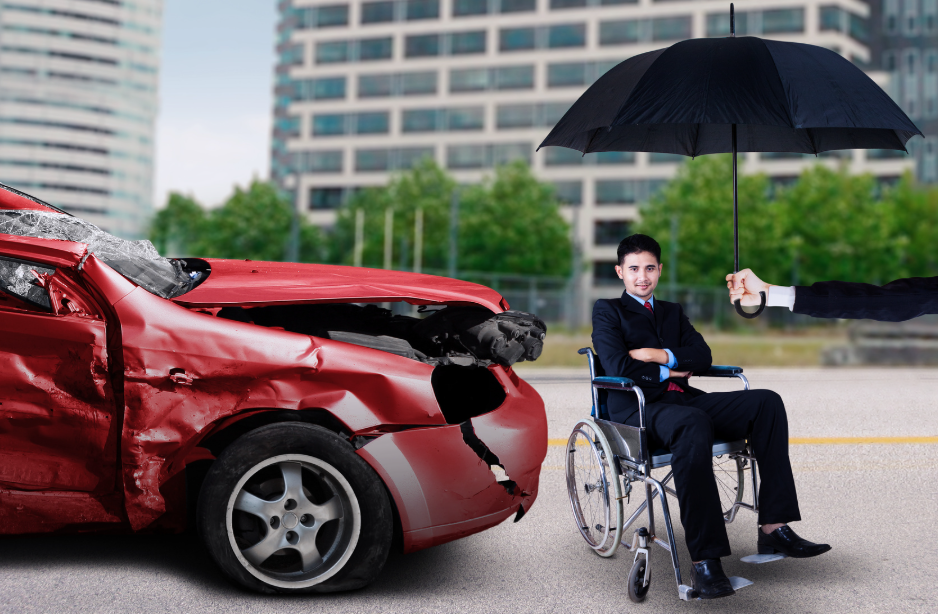Introduction
When it comes to auto insurance, Personal Injury Protection (PIP) is one of the most important types of coverage you should understand. PIP can help protect you and your passengers in the event of an accident, covering medical expenses, lost wages, and other costs regardless of who was at fault. While it’s not mandatory in every state, it can provide significant financial protection for those who need it most.
If you’re in the market for car insurance, it’s essential to choose the right policy that includes PIP coverage. In this comprehensive guide, we’ll walk you through everything you need to know about Personal Injury Protection (PIP), including what it covers, who needs it, and how to find the best car insurance companies to provide you with the coverage you deserve.
1. What is Personal Injury Protection (PIP)?
Personal Injury Protection (PIP) is a type of auto insurance coverage that helps pay for medical expenses, lost wages, and other related costs after a car accident, regardless of who was at fault. While liability insurance covers the cost of damages to other people’s vehicles and property, PIP insurance covers your medical expenses and sometimes other related costs, such as rehabilitation, child care, or funeral expenses.
PIP is often called no-fault insurance because it pays out regardless of which driver was at fault in the accident.

Key Features of Personal Injury Protection:
- Medical expenses: Pays for treatment such as hospital bills, surgeries, and other medical expenses for you and your passengers.
- Lost wages: Covers a portion of your lost income if you cannot work due to injuries from the accident.
- Other expenses: Some policies also cover funeral costs, rehabilitation, childcare, and other out-of-pocket expenses that may result from an accident.
2. How Does Personal Injury Protection Work?
In the event of an accident, Personal Injury Protection (PIP) helps cover your expenses quickly without the need to establish fault. This is especially useful in situations where you cannot determine who was responsible for the accident or in “no-fault” states where the responsibility of fault doesn’t affect the ability to claim PIP.
Example:
Let’s say you’re involved in a car accident. If you have PIP insurance, your insurer will pay for medical expenses, even if you were at fault for the accident. This allows you to quickly access necessary medical treatments without waiting for liability determinations or court settlements.
PIP can cover a wide range of expenses:
- Ambulance fees
- Doctor visits and hospital stays
- X-rays and surgeries
- Prescription medications
- Physical therapy and rehabilitation
- Loss of income due to being unable to work
3. Who Needs Personal Injury Protection (PIP)?
While PIP isn’t mandatory in every state, it’s important for certain drivers to consider adding it to their auto insurance policy.
3.1 States That Require PIP Insurance
In some states, Personal Injury Protection is mandatory. These states have a no-fault insurance system, which means each driver’s own PIP coverage pays for their medical bills and lost wages, regardless of fault.

Some of the states where PIP insurance is required include:
- Florida
- Michigan
- New York
- New Jersey
- Utah
- Kentucky
- Minnesota
3.2 When Should You Consider PIP?
Even if you don’t live in a no-fault state, Personal Injury Protection is beneficial if:
- You want to avoid the out-of-pocket costs for medical bills and lost wages after an accident.
- You do not have health insurance, or your health insurance has limited coverage.
- You want to ensure that your passengers are covered as well in the event of an accident.
If you live in a state where PIP is not mandatory, it’s still worth considering as an addition to your policy for peace of mind.
4. What Does Personal Injury Protection (PIP) Cover?
While PIP coverage varies by state, it generally includes a wide range of expenses. Some of the key areas covered by PIP insurance include:
4.1 Medical Expenses
PIP will typically cover all necessary and reasonable medical treatments resulting from the car accident, including:
- Emergency room visits
- Doctor’s visits
- Surgery
- Ambulance and emergency transport
- Prescriptions
- Rehabilitation treatments
4.2 Lost Wages
If you are unable to work due to injuries sustained in the accident, PIP helps replace a portion of your lost income. The exact amount varies by state and policy, but typically PIP covers up to 80% of your lost wages.
4.3 Other Expenses
In addition to medical expenses and lost wages, PIP may also cover other expenses related to your injuries:
- Childcare: If you are unable to care for your children after an accident, PIP may cover the cost of hiring childcare.
- Household services: If you cannot perform everyday household tasks due to your injuries, PIP may reimburse you for the cost of hiring help for cleaning, cooking, or other domestic duties.
- Funeral expenses: In the tragic event of death resulting from an accident, PIP may cover funeral costs.
5. How Much Personal Injury Protection (PIP) Should You Get?
The amount of PIP coverage you should purchase depends on various factors, such as your health insurance coverage, the medical care you may need after an accident, and your personal financial situation.
5.1 Minimum PIP Coverage
Many states have minimum PIP coverage limits, which may not always be enough to cover all your expenses, especially if you need extensive medical treatment or have high lost wages.
5.2 Maximizing Your PIP Coverage
If you want additional protection, you can choose to purchase more PIP coverage than the minimum. This is particularly important if you:
- Have a high-risk job and may need to replace a substantial portion of your income after an accident.
- Do not have health insurance or are underinsured.
- Want extra peace of mind knowing that your family and passengers are fully covered.
6. PIP vs. Health Insurance: Which One Do You Need?
A common question people ask is whether they need PIP insurance if they already have health insurance. While health insurance does cover medical expenses, PIP insurance is often faster and more comprehensive in the context of a car accident.
Key Differences Between PIP and Health Insurance:
- PIP provides immediate coverage for medical expenses and other costs related to a car accident, without waiting for a fault determination or claim approval.
- Health insurance may have higher out-of-pocket costs (deductibles, copays) and doesn’t cover lost wages, rehabilitation, or other accident-related expenses.
- PIP may cover a wider range of accident-related expenses, such as household help and childcare, while health insurance typically does not.
For the best protection, some drivers choose to have both PIP and health insurance, ensuring that all potential expenses are covered.
7. How to Find the Best Car Insurance Companies for PIP Coverage
Choosing the right car insurance company is critical when it comes to securing the best PIP coverage. Here are some steps you can follow to ensure you get the right coverage:
7.1 Compare Quotes from Multiple Providers
Different insurance companies offer different levels of PIP coverage and premiums. Use online quote tools or work with an insurance agent to compare prices and coverage options from multiple providers.
7.2 Consider Your Needs
Think about how much PIP coverage you need based on your health insurance, income, and the amount of risk you’re willing to take. Some states mandate minimum amounts of coverage, but you can always add more if you feel it’s necessary.
7.3 Look for Discounts
Many car insurance companies offer discounts that can help lower the cost of PIP coverage. Some discounts to consider include:
- Bundling your car insurance with other policies, like homeowners or renters insurance.
- Safe driver discounts for maintaining a clean driving record.
- Usage-based insurance where premiums are based on your driving behavior (tracked via apps or devices).
7.4 Check Customer Service and Reviews
Customer service is essential when dealing with PIP claims. Research the company’s reputation for handling claims efficiently and providing solid customer support.
8. Top Car Insurance Companies That Offer Personal Injury Protection (PIP)
The following auto insurance companies are known for offering excellent Personal Injury Protection (PIP) coverage in addition to a variety of other insurance products:
8.1 GEICO
GEICO offers PIP coverage in states where it is available and provides a variety of customizable options to suit your needs. Their easy-to-use online tools and efficient claims processing make them a top choice for drivers seeking affordable PIP coverage.
8.2 State Farm
State Farm is one of the largest insurers in the U.S. and offers comprehensive PIP coverage with competitive pricing. State Farm is known
ChatGPT said:
ChatGPT
Get smarter responses, upload files and images, and more.
Log in
Sign up
